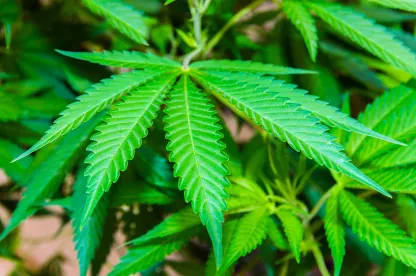U.S. Customs and Border Protection (CBP) clarified on October 9, 2018, that Canadians who work in Canada’s legal cannabis industry may enter the United States for non-work-related reasons without negative consequences. Over the past few months, numerous individuals who are employed by the cannabis industry and, in some cases, individuals who have merely invested in the industry, have been turned away at the border and some have received lifetime bans for entry.
Statement of Clarification
CBP’s clarification states in relevant part:
“A Canadian citizen working in or facilitating the proliferation of the legal marijuana industry in Canada, coming to the U.S. for reasons unrelated to the marijuana industry will generally be admissible to the U.S. However, if a traveler is found to be coming to the U.S. for reasons related to the marijuana industry, they may be deemed inadmissible.”
Though this is certainly good news for Canadians traveling to the United States for personal reasons, caution must still be exercised. There are no assurances that CBP officers may be trained sufficiently to address these nuanced issues without incident. CBP agents retain discretion to reject any applicant seeking entry for reasons “related to the marijuana industry.” This is a broad exception that presumably will keep border crossers at risk for any visit other than for purely personal reasons.
CBP Involvement
Indeed, the October 9 clarification emphasizes that “CBP officers are the nation’s first line of defense in preventing the illegal importation of narcotics, including marijuana,” and that “U.S. federal law prohibits the importation of marijuana and CBP officers will continue to enforce that law.” CBP further explains that the determination of admissibility and whether possible criminal enforcement is appropriate is made by the CBP officer “based on the facts and circumstances known to the officer at the time.”
Border crossers are explicitly warned:
“Generally, any arriving alien who is determined to be a drug abuser or addict, or who is convicted of, admits having committed, or admits committing, acts which constitute the essential elements of a violation of (or an attempt or conspiracy to violate) any law or regulation of a State, the United States, or a foreign country relating to a controlled substance, is inadmissible to the United States.”
CBP agents will continue to look for evidence that supports the essential elements of a violation of U.S. laws relating to controlled substances. There are a number of relevant statutes and regulations in that regard. For example, to support a conviction for the crime of importation of a controlled substance (drug trafficking), the United States must establish beyond a reasonable doubt that the defendant (1) played a role in bringing a quantity of a controlled substance into the United States from outside of the country, (2) knew the substance was controlled and (3) knew the substance would enter the United States. United States v. Moreno, 185 F.3d 465, 471 (5th Cir. 1999). To prove aiding and abetting the importation of drugs, the United States must establish beyond a reasonable doubt that the defendant associated with the criminal venture purposefully participated in the crime and sought to make it successful. United States v. Pando Franco, 503 F.3d 389, 394 (5th Cir. 2007).
Despite the recent clarification by CBP, individuals involved in the Canadian cannabis industry must remain cautious when answering questions at the border about their personal involvement in any cannabis-related business. Any questions posed by CBP must be answered truthfully at the risk of criminal prosecution. Based on the clarification, individuals who are truly entering the United States for purely personal reasons should be able to do so at little risk. Anyone who may be tempted to cross the border for business reasons and attempt to hide the truth from border agents should reconsider.
CBP officials have broad powers, and the U.S. Constitution’s Fourth Amendment protections against unreasonable search and seizure are lessened at the borders. For example, CBP officials have the authority to search an individual’s electronic device for a brief, reasonable period of time to perform a thorough border search. CBP also has broad access to publicly available information as well as other information from U.S. government and state government sources.
Summary
Crossing the U.S. border in the cannabis age remains potentially risky. Canadians who intend to cross the border should remain vigilant and exercise caution, notwithstanding the October 9 clarification by CBP. In fact, the clarification broadens scrutiny because CBP agents now appear to have discretion to investigate whether activity is related or unrelated to the marijuana industry. Individuals or employees of entities who believe that they may be the subject of scrutiny or review by CBP should consult with both Canadian and U.S. counsel to review their specific situation and address potential options.




 />i
/>i
